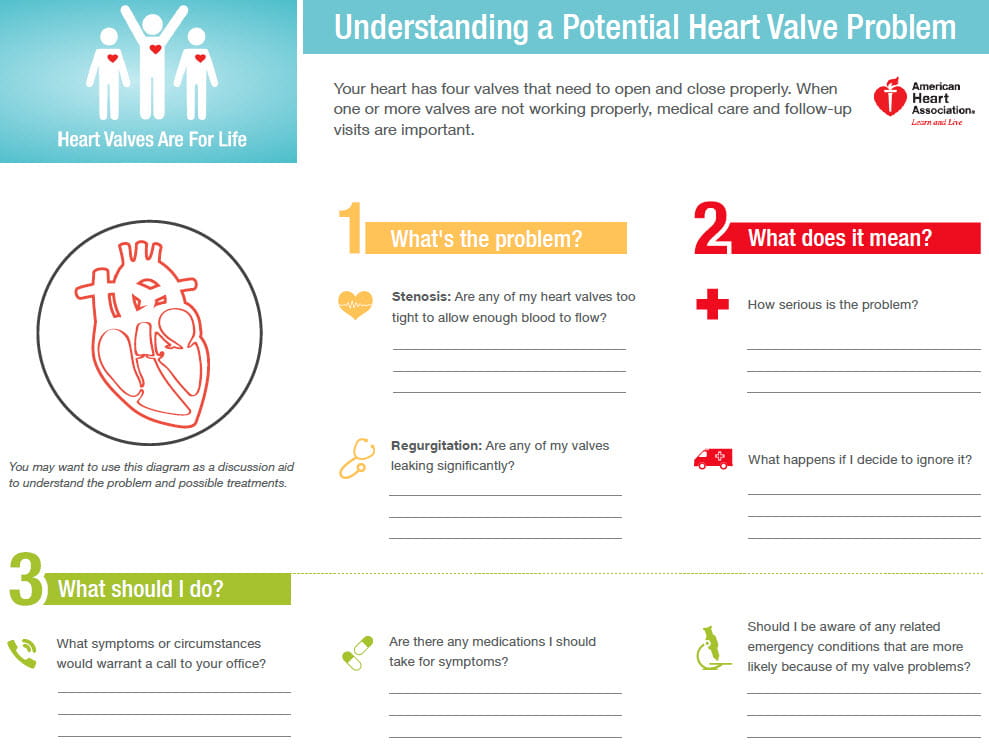Heart Valve Diagnosis Criteria
Before seeing your healthcare professional or consulting a specialist about a possible heart valve problem, you have probably been told you have a murmur that needs to be checked or you may have experienced a physical symptom or group of symptoms that need further investigating.
Heart valve problems and abnormalities, whether because of stenosis or regurgitation, often produce a heart murmur. A heart murmur can be harmless, known as an innocent murmur, but many heart murmurs will need further investigation by your healthcare provider.
There are several methods for diagnosing heart valve disease. The most important is the echocardiogram.
Download and print this patient guide: English (PDF) | Spanish (PDF)
To assess your needs and determine the severity of problems you might be having, your healthcare team will use the following criteria:
- Whether or not you are having symptoms of valve problems
- Whether you have any other heart conditions to consider
- Appearance of the heart and valves
- Tightness or looseness of the valve opening
- Amount and pressure of the blood flowing properly through the valve
- Pressure and noted changes to the nearby tissues and organs
To fully understand your heart valve problem, your medical team may want to perform a series of tests to provide a complete picture of what needs repair and what may be best left alone.
- Appearance: Some tests help to provide a picture of what the valve looks like.
- Chest X-ray
- Cardiac Computed Tomography
- Function: Other tests help to determine how well the valve is able to do its job.
- Damage or Strain: Still, others help to evaluate the entire heart and nearby circulatory organs to see if your valve problem has affected your heart in ways that could place you at increased risk.
- Exercise Test
- Electrocardiogram
- Echocardiogram
Read more about these heart valve tests.
Additional resources:
- Download and print our guide: Understanding a Potential Heart Valve Problem (PDF) (link opens in new window) | Spanish (PDF)






